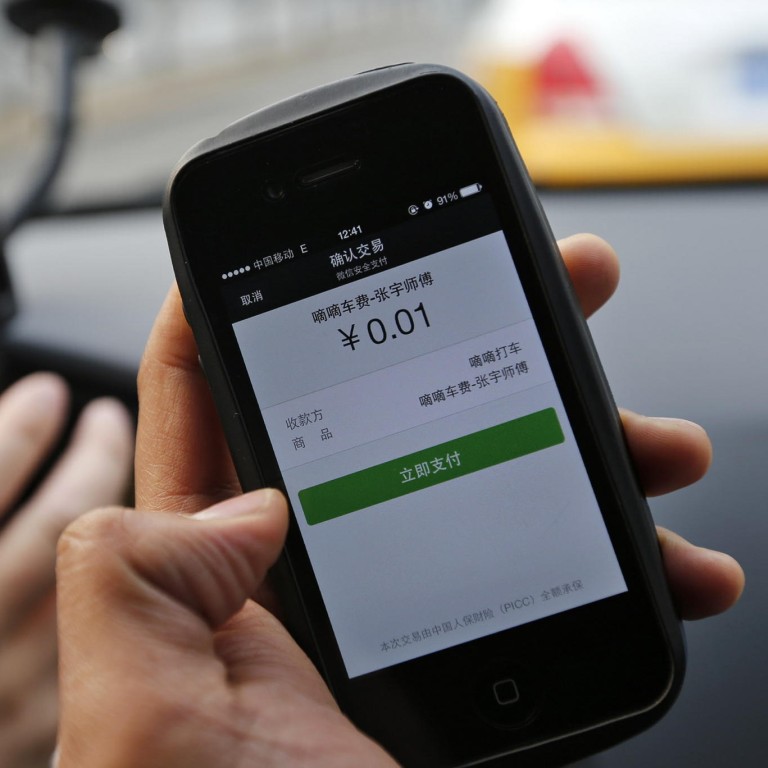
Leading taxi apps Kuaidi and Didi in US$6b merger to counter Uber's advance in China
Mainland China's two largest taxi-booking apps - backed by internet rivals Alibaba and Tencent - announced their merger as global industry leader Uber seeks to expand in the Chinese market.
Mainland China's two largest taxi-booking apps - backed by internet rivals Alibaba and Tencent - announced their merger yesterday as global industry leader Uber seeks to expand in the Chinese market.
Alibaba-controlled Kuaidi Dache and Tencent-invested Didi Dache, which together are valued at about US$6 billion, did not disclose details of their respective shares in the merger.
However, Didi, the larger of the two companies based on user numbers, reportedly will own the larger stake of between 52 to 55 per cent.
Didi's founder and chief executive officer, Cheng Wei, and Kuaidi head Lu Chuanwei will be joint CEOs of the new merged company.
"The new company after the merger will be an important provider in the global mobile transport sector," Kuaidi and Didi said in a joint announcement on Valentine's Day.
Despite the merger, the erstwhile fierce rivals will retain their respective brands and independent operations, they said.
The development comes after leading taxi-booking provider, US-based Uber, secured Baidu's backing in December to help it expand in China, one of the world's largest markets for mobile transport services.
Baidu agreed to buy an undisclosed minority stake in the US company. Uber is valued at a hefty US$40 billion.
Didi said in a report last month that it had 150 million users last year, with up to 12 million daily transactions. Kuaidi is estimated to have nearly 80 million users.
Only a year ago, Kuaidi and Didi were locked in an expensive battle for market share, pouring an estimated 1 billion yuan (HK$1.27 billion) each last year into subsidising taxi drivers and passengers to attract more users.
Kuaidi and Didi, which both launched in 2012, offer taxi-booking services in more than 300 Chinese cities, including Hong Kong. Last year they launched a range of limousine services aimed at high-end customers.
Cheng said in the announcement that, in just three years of operations, such booking services had changed the Chinese transport sector by maximising use of resources.
"If any [firm in China's] internet sector is going to go global, mobile transport offers the best chance," said Lu. "After the merger, we will consolidate our technology, human resources, offer better products, and improve our competitiveness."
The merger marks Alibaba and Tencent's second joint venture after they set up Zhong An Online Property Insurance with Ping An, one of China's largest insurers, in 2013.
Kuaidi and Didi said they have each raised about US$800 million through several rounds of financing in the past two years.

